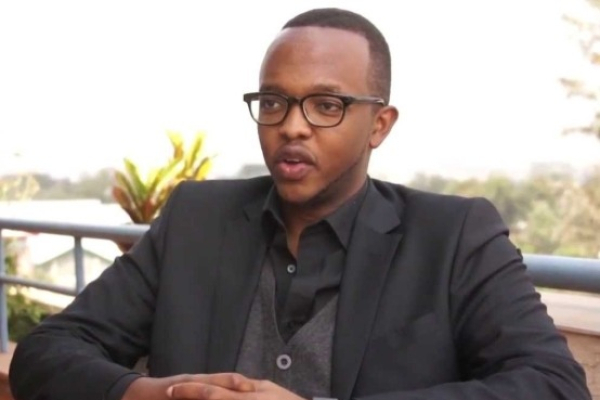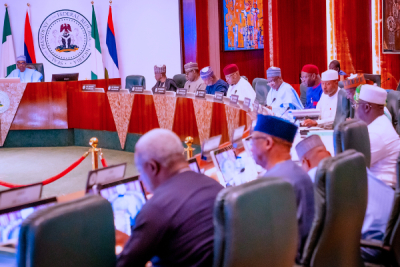Formerly ToLet.com, it merged with Jumia House in 2017 to become PropertyPro. The platform aims to become one of the most important proptech companies in Africa.
PropertyPro is a proptech platform created by a Nigerian startup that helps individuals in Nigeria find properties for rental or purchase.
By using its web and mobile (Android and iOS apps) platforms, PropertyPro enables users to browse through a wide range of listed properties available for rent or sale across the country. With the help of the search bar, users can filter the properties based on location, number of rooms, and minimum and maximum budget. While visitors can view the details of the properties without an account, they must register or log in to proceed further.
The platform generates its revenues from commissions on transactions. It also charges subscription fees for real estate agents that list their properties. With over 60,000 listings, it claims to be Nigeria’s largest real estate platform. Its Android app has been downloaded more than 10,000 times. Since its launch, the startup has raised $1.4 million to support its growth in Nigeria.
Adoni Conrad Quenum
He is a tech and marketing professional with years of experience. As the head of the marketing firm Nendo, he assists African companies with their digital marketing processes.
Mark Kaigwa (photo) is a Kenyan writer and entrepreneur with a degree in Information Technology and Business from Strathmore University. He is the founder and CEO of Nendo, a digital marketing company based in Nairobi.
His marketing company, founded in 2013, supports ambitious leaders and teams that are ready to engage Africa's connected audiences. It offers a fresh approach that includes training, research, strategies, and solutions useful to its clients, industry… Its experienced team offers companies a digital framework to study data, survey customers, evaluate competitors, and get quick results to maximize their revenues. It also offers a system to quantify brand impact using data, qualitative research, and communication.
Nendo also provides digital landscape mapping to allow companies to assess mobile, digital, and social media opportunities, future growth opportunities, and existing benchmarks to allocate resources. It currently covers over 20 African countries.
Its founder, Mark Kaigwa, is a member of the Kenyan chapter of the non-profit organization Entrepreneurs' Organization and an alumnus of its acceleration program. He is also the non-executive director of FinCredit Ltd, a Kenyan microcredit institution, and the course director of Media Leaders Africa, owned by the broadcasting corporation BBC.
An animator and creative consultant for Warner Bros in 2008, he worked for Brainwave Communications Ltd as a senior copywriter from 2009 to 2010. Between 2010 and 2013, he was a partner in the African Digital Art Network where he supported the research, writing, and curation of African animation. He was later a partner at Afrinnovator, a digital media and analytics company focused on business, economics, and investments in Africa. In 2017, for five months, he was a mentor for XL Africa, an acceleration program launched by the World Bank.
The entrepreneur has received several awards and recognitions including a nomination in the Forbes 30 under 30 list in 2013. In 2018, he made it to the Top 25 Men in Digital issued by DigiTalk Kenya. In 2022, he was the 2nd runner-up of the Global Compact Network Kenya (GCNK) SDG Pioneer.
Melchior Koba
In 2020, Nigeria adopted a 10-year strategic plan to boost blockchain adoption. The plan banks on the blockchain to foster growth and prosperity in the years to come.
The Federal Executive Council of Nigeria approved, Wednesday (May 3), the National Blockchain Policy, according to a press statement from the Federal Ministry of Communications and Digital Economy. The said approval follows a memo presented by Digital Minister Isa Ali Pantami, we learn.
“The vision of the Policy is to create a Blockchain-powered economy that supports secure transactions, data sharing, and value exchange between people, businesses, and Government, thereby enhancing innovation, trust, growth, and prosperity for all. The implementation of the National Blockchain Policy will have a positive effect on both the public and private sectors of the country,” the press statement reads.
The executive believes that blockchain technologies can accelerate the development of the country’s digital economy. To capitalize on the said technologies, in 2020, the country launched a blockchain adoption strategy. The country hopes the strategy will lay the groundwork to generate around $10 billion in revenues from the blockchain by 2030.
Nigeria bases its revenue estimates on a recently published PricewaterhouseCoopers report which states that blockchain happens to be one of the "fastest growing technologies in the world." The report explains that by 2030, the technology could generate $1.76 trillion in revenues worldwide, representing 1.4% of the global GDP.
According to the federal government, the implementation of the National Blockchain Policy will have a positive effect on both the public and private sectors in Nigeria. It will revolutionize many sectors, from finance and healthcare to transportation and supply chain management.
It can also make “transactions more transparent, trustworthy, and efficient and it can result in considerable cost savings and better user experiences.”
“Furthermore, Blockchain Technology can boost innovation, improve public services, create job opportunities, and drive economic growth,” the press statement informs.
Samira Njoya
Lillian Barnard has been the managing director of Microsoft South Africa since 2019. Kalane Rampai will replace her.
Microsoft appointed South African Lillian Barnard (photo) as president of Microsoft Africa. The US tech giant announced on May 2.
Barnard has been working in the ICT industry for more than 25 years. She has held local and international leadership positions at companies such as IBM and Vodacom before becoming the CEO of Microsoft South Africa in 2019. She held the position since and will now be replaced by Kalane Rampai.
The appointments align with Microsoft's digital transformation efforts in Africa. The tech behemoth opened its Africa Transformation Office (ATO) in November 2021 and put it under the leadership of Nigerian Kunle Awosika. Microsoft's investments in Africa include digital infrastructure, connectivity, training, cybersecurity, cloud, small and medium enterprises (SMEs), and startups. According to an International Data Corporation (IDC), Microsoft and its partner ecosystem will spend about $3.7 billion in Africa on services and products over the next three years.
“As African organizations of all sizes, and across every sector, pivot and adapt to changing business and customer needs, they are looking for partners who can accelerate their agility, flexibility, and competitiveness, while also cutting costs and driving efficiencies. I am deeply passionate about unlocking the growth potential, using technology to deliver real impact for businesses, communities, and economies across the continent,” says Barnard.
Isaac K. Kassouwi
On Thursday (May 4), Vesicash, a Nigerian escrow payment system, announced the launch of its new Merchant of Record (MoR) product, as well as its expansion into new African markets. The MoR product aims to simplify the process for companies to enter new markets, and the startup is utilizing it to facilitate its expansion.
"We are thrilled to launch our Merchant of Record technology in multiple African markets. Thus, expanding our reach to businesses in Ghana, Rwanda, Zambia, and Egypt," stated Vesicash co-founder, Tomisin Adeshiyan.
In Nigeria, the National Information Technology Development Agency (NITDA) and the National Youth Service Corps (NYSC) recently partnered to develop the digital economy. The partnership aims to develop the digital economy in Nigeria by increasing awareness and encouraging the youth to adopt emerging technologies. Under the agreement, training will be offered to youth corps members interested in advanced technologies such as artificial intelligence and robotics.
The QR code technology was democratized in the 2000s but, it recently gained popularity in the Covid-19 period that facilitated the boom of the contactless economy. By adopting the technology, Kenya joins the few African markets that have standardized QR code usage to facilitate payments.
Last Wednesday, the Central Bank of Kenya (CBK) launched the "Kenya Quick Response (KE-QR) Code Standard 2023" aimed at improving digital payment services.
According to CBK governor, Dr. Patrick Njoroge, “the payment system will provide Kenyans with additional secure payment solution methods, increasing usability and consumer adoption of digital payment channels.”
The launch of the KE-QR Code Standard 2023 is one of the several initiatives taken by the CBK under its 2022-2025 National Payment Strategy to support the adoption of key standards and align Kenya's national payment system with global standards.
The effective implementation of the standard and the use of standardized QR Code payments will enable customers to make digital payments in a simple, fast, convenient, and secure manner using the QR code as opposed to the manual system used in the past. It will also promote financial inclusion by allowing institutions of different sizes and customer focus to
By effectively implementing the standard and utilizing standardized QR Code payments, customers can conveniently, quickly, securely, and easily make digital payments using the QR code instead of the manual payment system used in the past. Additionally, it will enhance financial inclusion by enabling institutions of various sizes and customer focus to expand the adoption of digital payments.
QR Code is a universal technology that can be scanned by specialized equipment and apps like the MPESA mobile app and banking apps similar to the ones offered by Equity Bank and the CBK. Thanks to the new standard, merchants can now have QR codes that contain their details as well as the unique identifiers of payment service providers. This technology also provides information about the transaction that has taken place.
Samira Njoya
Its founder, Doaa Abdel Hameed, was the head of operations for a food delivery firm. When her entrepreneurship drive was awakened, she decided to launch a solution in the sector she knows well.
Bonbell is a digital solution developed by an Egyptian start-up. It allows people to order and have food delivered wherever they want. The founding startup is based in Cairo but has partnerships with restaurants in most governorates in Egypt.
“We aim to help restaurants to offer an easier food ordering experience to their customers, either through food delivery, table reservations, takeout orders, or even special orders made by customers within their establishments,” said Doaa Abdel Hameed, co-founder, and chief business officer of Bonbell.
Users can access Bonbell’s services through its Android and iOS apps. Once registered, they can check the various restaurants listed on the platform and place orders if they want. “We strive to provide Egyptian users with a more enjoyable experience when it comes to meal ordering. We see a lot of potential and opportunity to do that by continuously developing the App based on users’ feedback. We will also expand our restaurant offerings across all of Egypt’s governorates,” Ms. Doaa Abdel explains.
Bonbell has raised $350,000 in funding to develop its technology and support its growth, among other things.
Bonbell wants to become a super app. For that purpose, it is integrating a growing number of services such as hotel booking or even services to sports clubs, universities, and companies. Ms. Doaa Abdel Hameed reveals that the solution started “dine-in and takeaway food ordering,” but, it believes that both food ordering and delivery “need more innovation and service enhancement.”
“...The food delivery business is somehow moving towards saturation and high competition, and it is not smart to go and dance with the wolves while we are still at this early-stage startup,” she indicates.
This year, Bonbell has been selected among the 13 startups to participate in the Top-up acceleration program organized by Orange Digital Center Egypt, Deutsche Gesellschaft für Internationale Zusammenarbeit (GIZ) GmbH and Sprints (an accelerator that supports innovative tech startups). To accelerate its growth, it has raised $350,000.
Its Android app has been downloaded more than 10,000 times, according to Playstore’s data. In 2022, it was claiming over 22,000 clients and readying itself for the next stage of its growth. It then launched preparations for a $10 million funding round. Once completed, the proceeds are expected to help upgrade infrastructure and systems as well as fund expansion in the MENA region.
Adoni Conrad Quenum
He has over 12 years of experience in various fields such as humanitarian aid, finance, and entrepreneurship. With Naledi Services, he supports SMEs and start-ups in their digitization process.
Patrice Binwa Aganze (photo) is a Congolese entrepreneur who graduated from the University of Goma in 2011 with a degree in finance and financial management services. He also holds certificates of Professional Competence from Trust Merchant Bank and HavardX. He is renowned as the founder and CEO of tech company Naledi Services.
The company was founded in DR, in 2014. It develops custom web and mobile apps, and offers and maintains security systems, among other things, to help entrepreneurs in their management tasks.
"Naledi Services was created to provide solutions that improve the management of SMEs and startups. Our slogan says it best: “Think IT, Get IT”. We have noticed that many people start their businesses with the buzz around entrepreneurship, but the vast majority of Congolese SMEs do not have management tools adapted to their business," said Patrice Binwa Aganze on what prompted him to create the company, during an interview with TechCabal on May 2, 2023.
The digital solutions he provides SMEs and startups include Reflet, a store management software that offers the possibility to create loyalty programs to reward customers when they visit points of sale. There is also Akiba, a savings management software designed for microfinance institutions and establishments.
Naledi Services is also a communications agency that offers its clients advertising, media, print, marketing, press, and public relations management. It also manages professional and leisure events. To date, Naledi Services has 2,351 active users and has worked with over 375 SMEs and NGOs.
Its founder, Patrice Binwa Aganze, is a UN Capital Development Fund Business Development Support Expert since 2020. He entered the professional world, in 2009, by joining Radio Kivu One as a columnist. At the same time, he was working for APROFIME (Action pour la promotion de la fille-mère) as a senior accountant. He was also a customer service agent for Trust Merchant Bank from 2013 to 2014.
Melchior Koba
Nestcoin, a Nigerian company that makes modern finance borderless, recently announced the launch of "Onboard," a platform aimed at providing modern digital financial services that connect Africans to the global economy.
Among other things, the new platform will allow users to store and move digital assets directly to and from their bank accounts.
More...
Last weekend, Congolese Minister of Posts and Telecommunications Leon Juste Ibombo (photo, right) granted an audience to Guinean Minister of Transport, Evita Oma Honorato (photo, left).
The two officials discussed future agreements to develop the ICT sector in their respective countries. The envisaged cooperation will focus on mobile money interoperability and the implementation of the Oyola training project.
In recent months, various accusations have been leveled against social media giants in Africa. This could take another turn with the birth of an African union of moderators.
On the sidelines of labor day, last May 1, more than one hundred and fifty employees of subcontractors of Meta, OpenAI, or ByteDance met in Nairobi, pledging to create the first African union of content moderators, several media outlets reported.
The new union aims to address issues that these workers regularly complain about, including poor working conditions, pay that is sometimes less than $2 an hour, and the impacts of content moderation on their mental health.
"There have never been more of us. Our cause is right, our way is just, and we shall prevail. I couldn’t be more proud of today’s decision to register the Content Moderators Union," said Daniel Motaung, a former content moderator who was fired after he decided to register a content moderators’ union.
The unionization efforts began three years ago after several contested terminations, including that of Daniel Motaung employed by Sama, the company responsible for Facebook content moderation in East and South Africa since 2019.
Another issue that led to the creation of the union is the low budget dedicated to “the rest of the world.” In 2021, a Wall Street Journal investigation found that Meta's Facebook was spending 87 percent of its disinformation resources in the United States and Western Europe at the time, leaving the rest of the world vulnerable to the dangers of misinformation.
By setting up the African Union of Moderators, the professionals who work or have worked for Facebook, TikTok, or ChatGPT hope to give workers more bargaining power, which can translate into higher wages, better working conditions, and more benefits.
Samira Njoya
She is a computer scientist with a passion for digital transformation, and her contribution to the Ugandan ICT sector was recently celebrated with a national medal.
Aminah Zawedde (photo) is currently the Permanent Secretary of Uganda's Ministry of Information and Communication Technology and National Guidance. She is a graduate of Makerere University, where she earned a bachelor's degree in statistics in 2001 and a master's degree in information systems in 2005. She also holds a graduate degree in education technology from the University of Cape Town (2014) and a Ph.D. in software engineering from Eindhoven University of Technology (2016).
Since 2021, she has been assisting the Ministry of ICT in leading, coordinating, and supporting the formulation of policies, laws, regulations, and strategies to develop the national ICT sector. Her career began in 2001 as the Data Officer for the Uganda Electoral Commission, followed by an internship in the IT department of the Uganda Revenue Authority in 2005. In 2006, she joined the Infectious Diseases Institute-Mulago Hospital as an IT consultant. From 2008 to 2016 and then from 2016 to 2021, respectively, she was an assistant lecturer and teacher-researcher at Makerere University.
Aminah Zawedde's outstanding work in promoting and advancing the use of ICT in Uganda was recognized on May 1, 2023, when the Ugandan government awarded her a national medal, along with Vivian Ddambya. She is also a member of the Board of Directors of the National Information Technology Authority-Uganda (NITA-U) and serves as the Non-Executive Director of DFCU Limited, one of Uganda's strongest financial institutions.
Melchior Koba
The PAYAIG (Pan-African Youth Ambassador for Internet Governance) initiative developed by Cyber Czar and supported by the British government announced, Tuesday (May 2), the opening of applications for its Internet governance program in Africa.
Applicants must be between 18 and 30 years old, reside in any African country, be able to communicate effectively in one of five languages: English, Arabic, French, Portuguese, or Swahili, and be motivated by Internet governance. The deadline for applications is May 19.















